An old friend of mine was moving cross-country and got in touch about taking “Some of his old computers” a while ago. I of course agreed, and it turned out to be quite a growth event for my hoard. There will be several posts about machines that arrived in this process as I get to them.
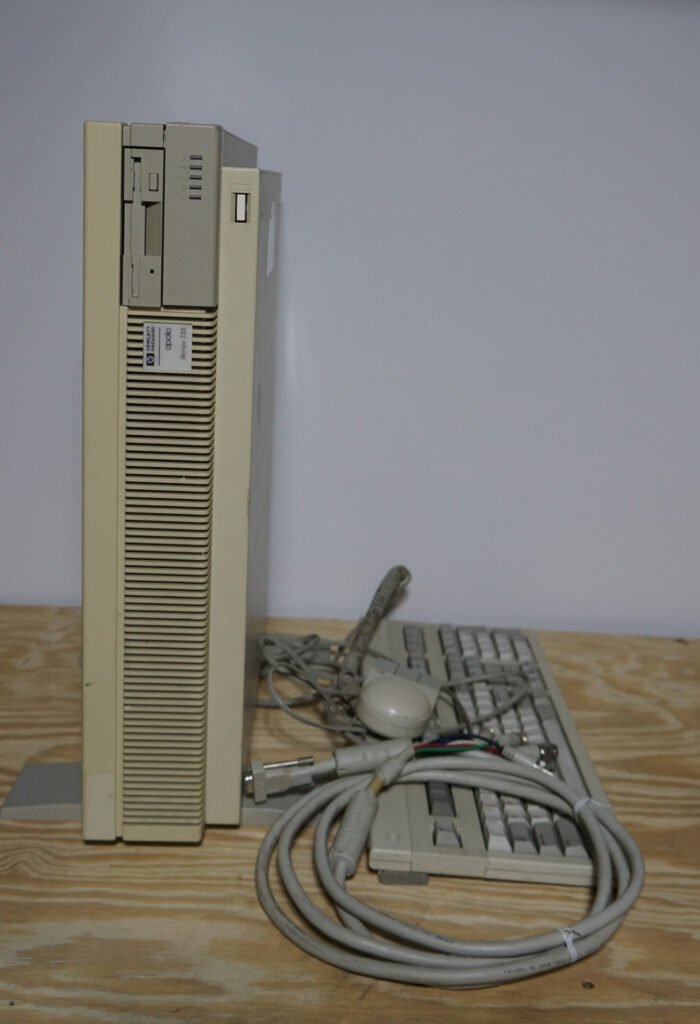
The list of things to be re-homed included “an Apollo” which I was hoping was a pre-acquision DN-something or a HP 300/400 series because I’ve had a long fascination with Domain/OS. What showed up is… not that. This is a later HP Apollo 9000/735 PA-RISC workstation, ca. 1992, which is easily the most exotic piece of hardware that transaction made me steward of. The OS options are HP-UX 7-10.20, a few BSDs, or a second-class NextStep 3.3 port; I’ll probably go with HP-UX10.2.
It came with the requisite HP-HIL keyboard and mouse (thank goodness) and a DEC branded 5xBNC to VGA cable.
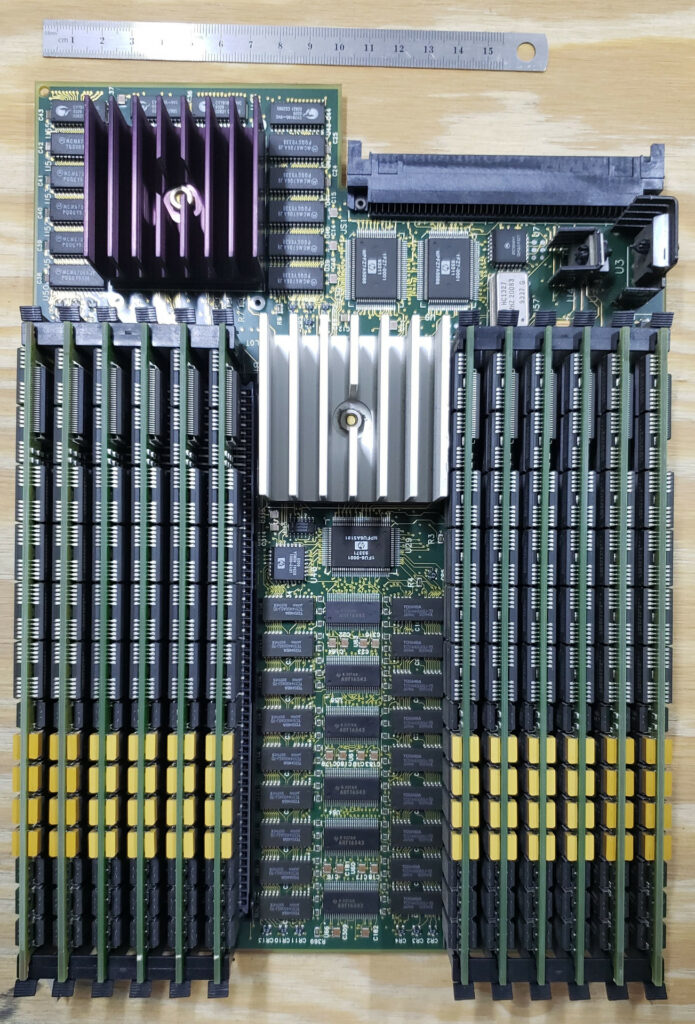
This thing was serious rarefied-air hardware when it was new: PA-7100 99 MHz processor, 208 MB of RAM in 12 obscene proprietary 16MB RAM modules + 16 soldered to the processor board, a HP CRX-24Z video board, a full-height SCSI HDD, and an AUI Ethernet daughter card. Probably in the ballpark of $60,000 new. It is also built like a piece of high-end industrial equipment, with big sheet-metal frames with handles that pull out of the back of the system for every major component.
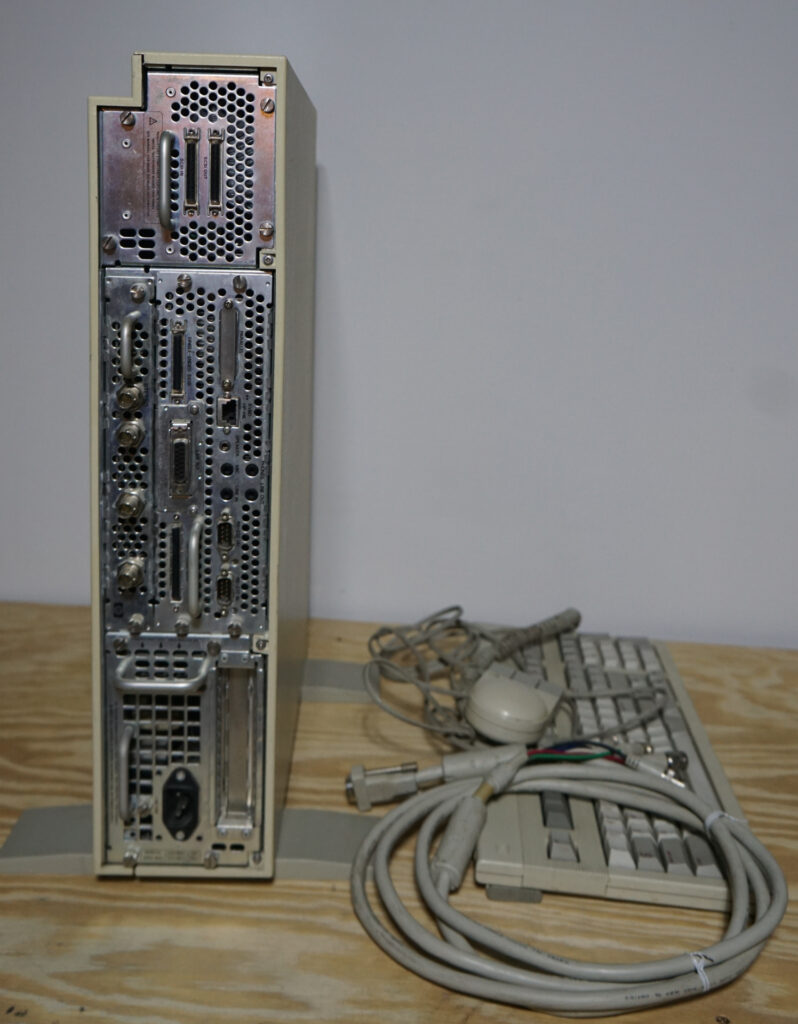
My first attempt to power it resulted in …a feeble blink of the power light.
That suggested to me that the PSU was bad, probably due to defunct electrolytic capacitors. So, in standard “old electronics troubleshooting” fashion, I pulled the PSU, tore it down, read labels off the most suspicious capacitors, and ordered replacements.
The HP Museum folk also suggest the AC line filter module is a time bomb on all of these, so since it’s still made, I grabbed one of those too.
List with Mouser links, since they were the vendor with everything I needed in-stock:
8x 2200uF 25V, 12.5mmD 40mmH, 5mm lead spacing , Nichicon UPJ1E222MHD 8@1.09
1x 220uF 35v, 10mmD, 20mmH, 7mm lead spacing, Nichicon UPM1V221MPD1TA 1@$0.72
1x 1x 22uF, 25V, 5mmD, 12mmH: Nichicon UPS1E220MDD1TA 1@0.30
1x 12uF, 35v, 5mmD, 10mmH, Panasonic EEA-FC1V120B 1@$0.39
1x AC Power Entry Module, Schaffner FN9222R-10-06, 1@$6.50
I also ordered a couple 470uF 25V, 10mmD, 20mmH, 5mm lead spacing caps, but ended up not installing them because there was no sign of damage and they were hard to get a good angle on.
I passed on dealing with a couple smaller electrolytics with no signs of damage, and also two gigantic 2x 1200uF, 250v, 35mmD, 47mmH, 10mm lead spacing input caps that cost $7.50 a piece, since they looked both fine and like a fight to get out without damaging the PCB.
One of these days I really need to invest in a proper pump-driven desoldering gun to make this kind of task safer and easier.
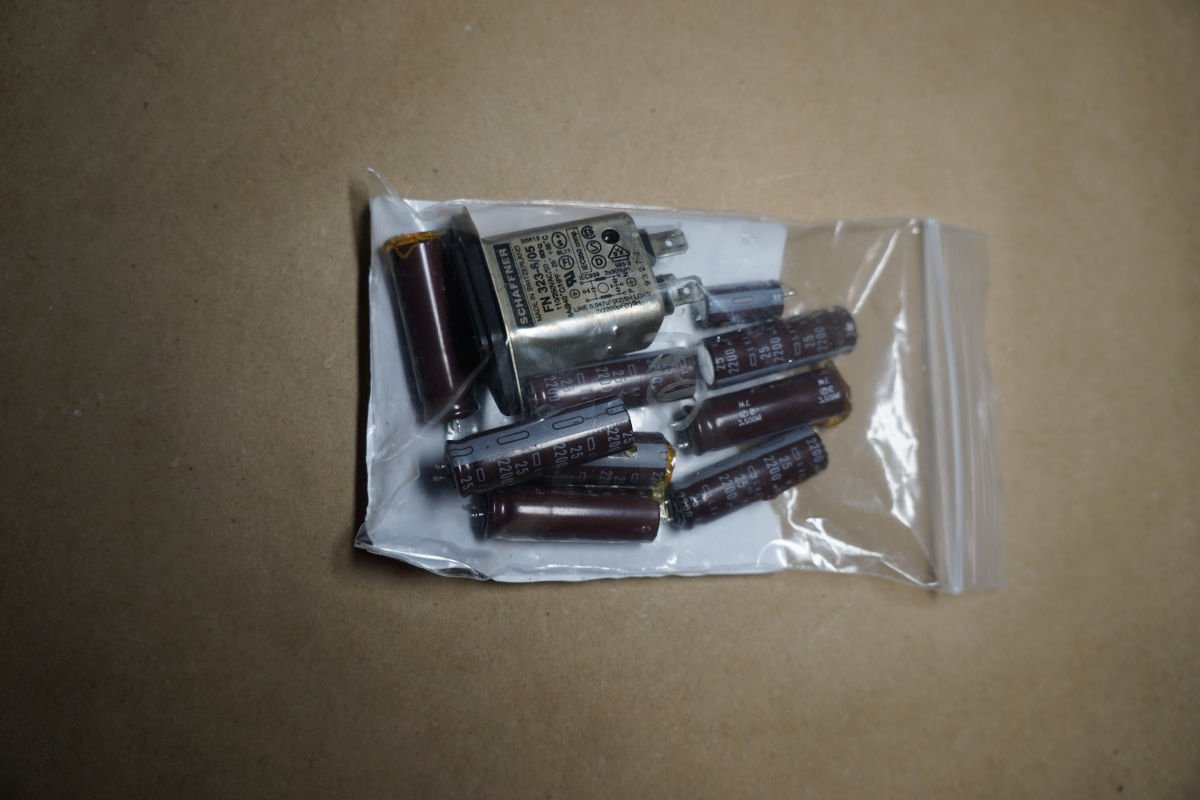
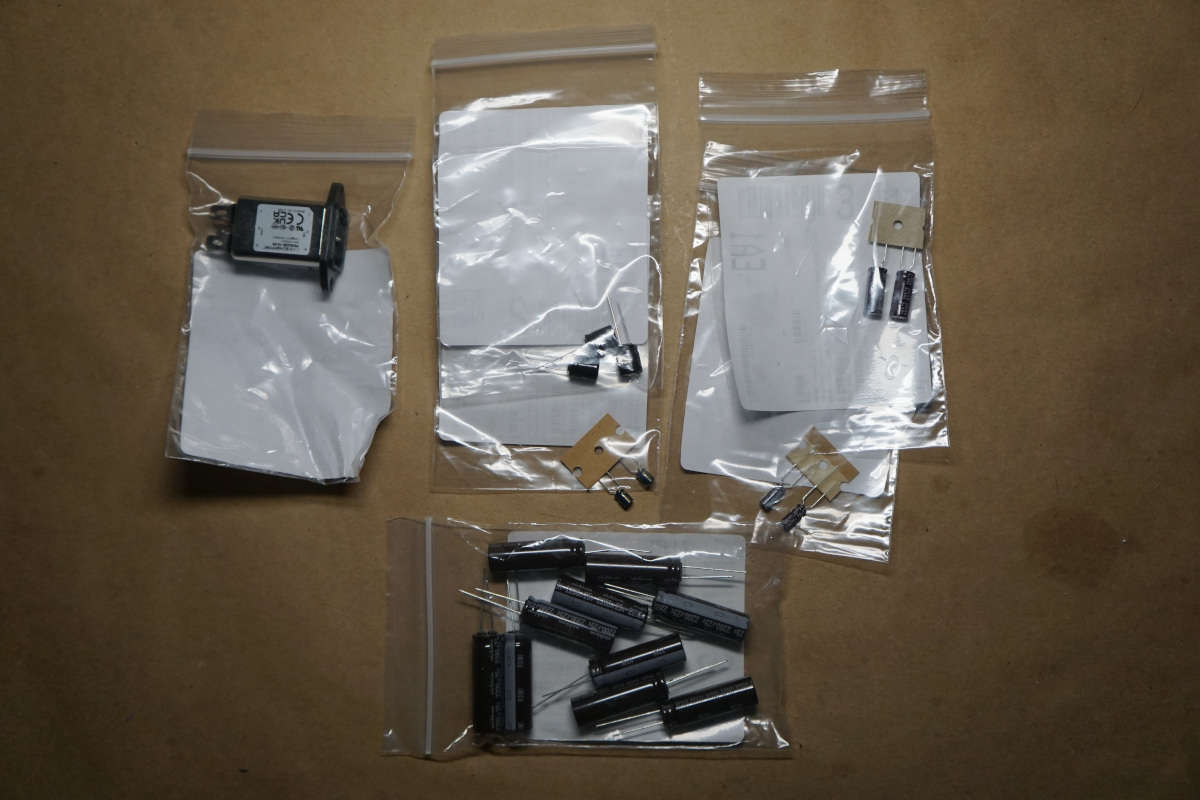
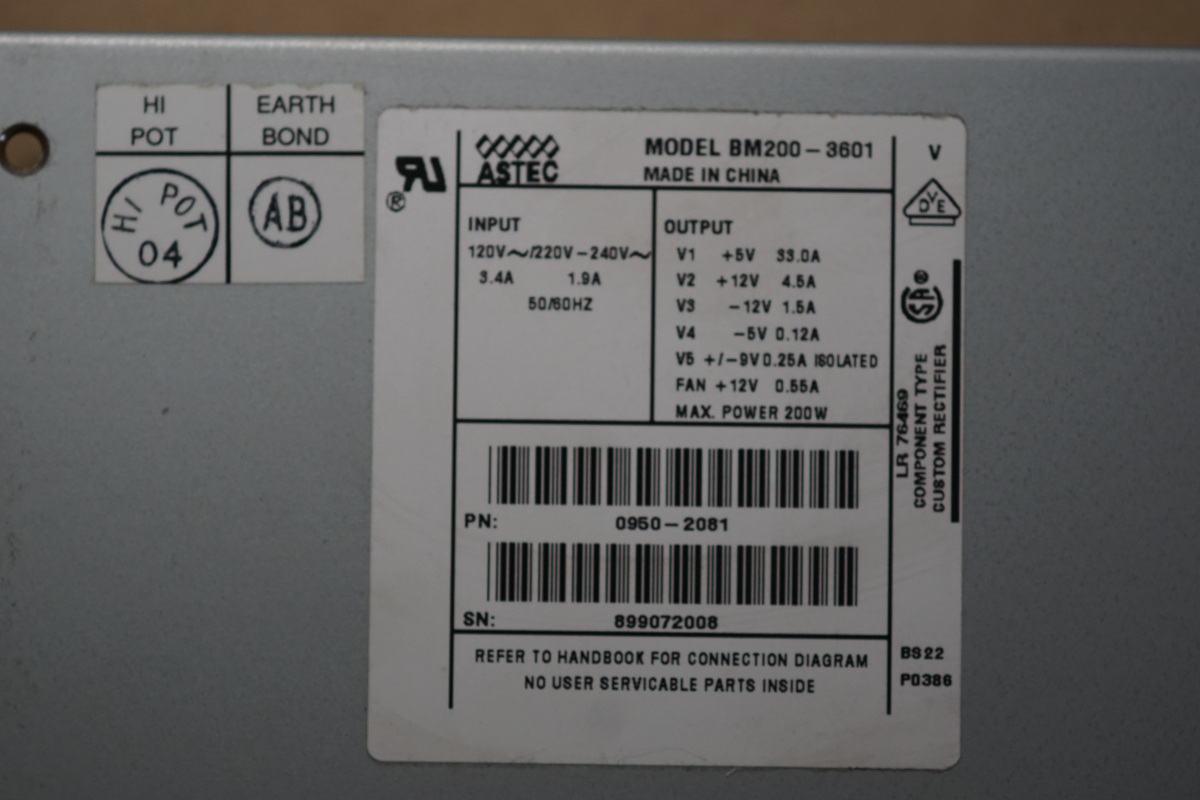
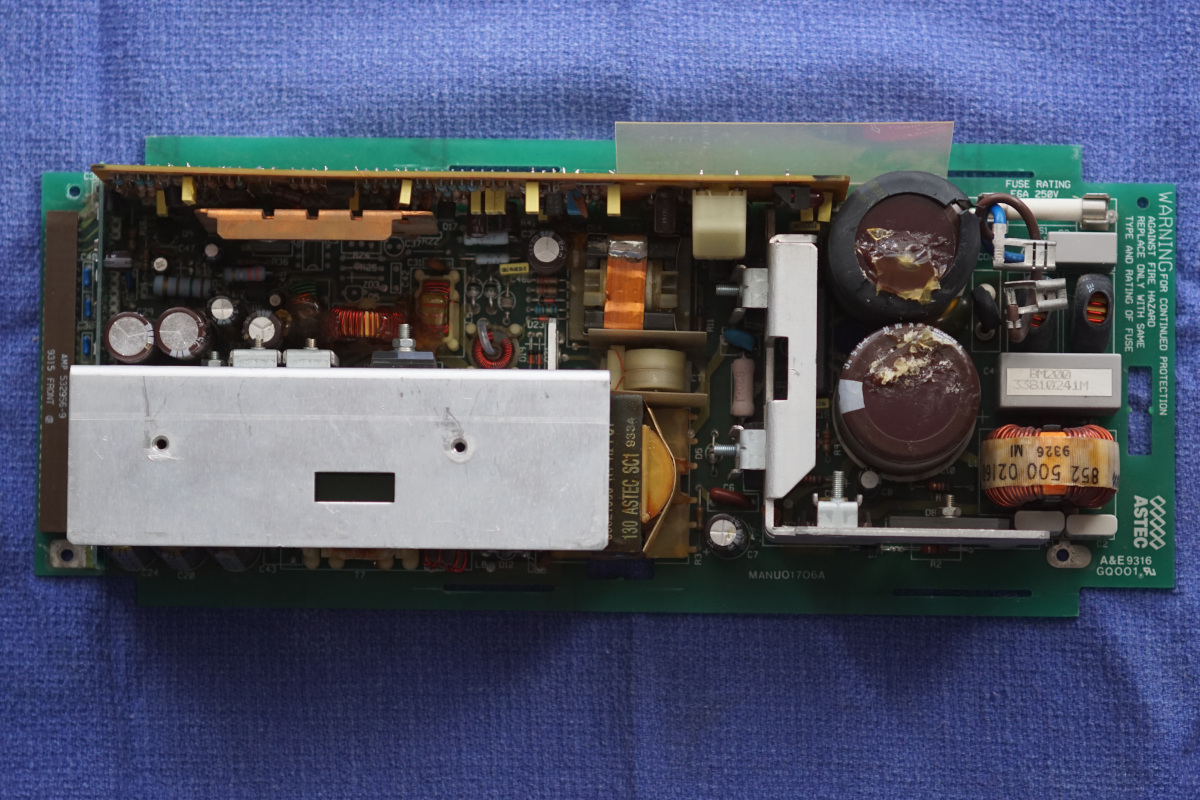
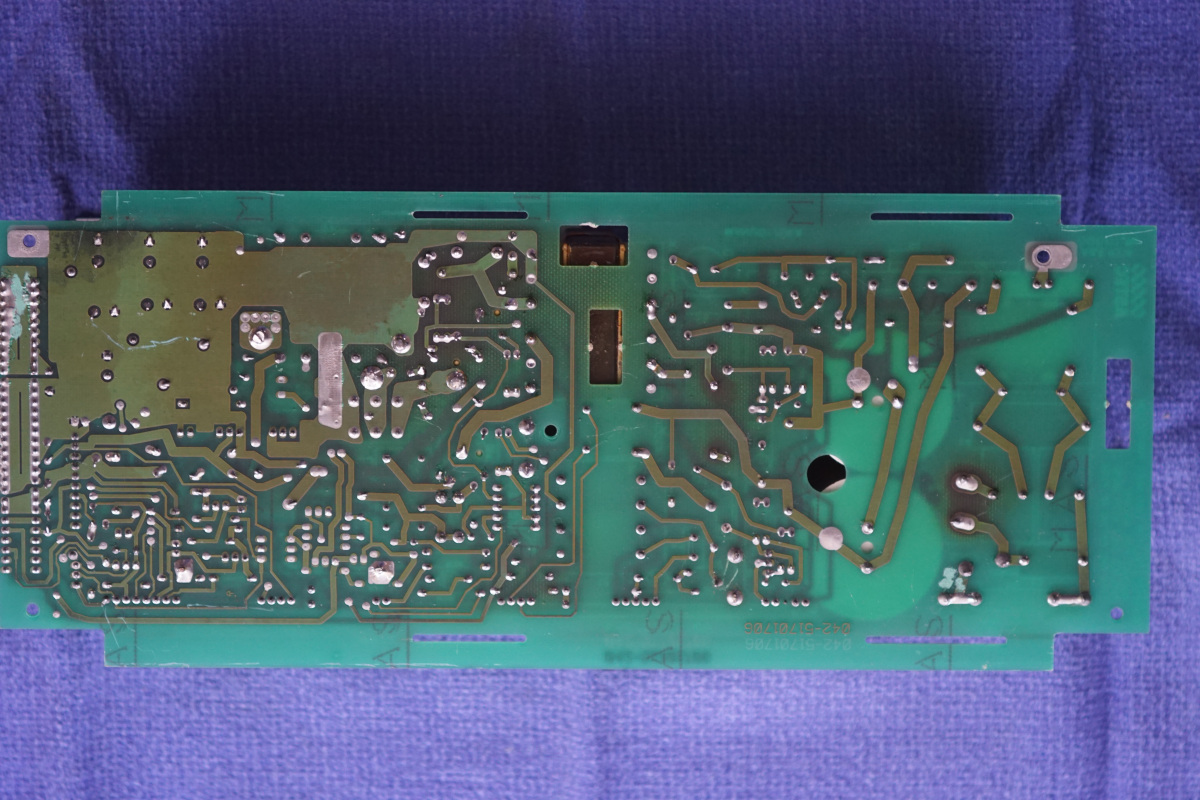
I of course picked up an extra 1-2 of each since it was noise over paying for shipping, and it’s a good thing because I dropped one of the new 220uF/35V parts and it instantly disappeared forever, presumably to wherever my cat has been hiding toys recently.
The new input filter is slightly longer than the original and required a bit of creative terminal bending to fit around the caps, but it made it back into the case.
After the recap, it powered right up, and on a second try after giving the hard disc a gentle thump to unstick the heads from park, everything spun right up.
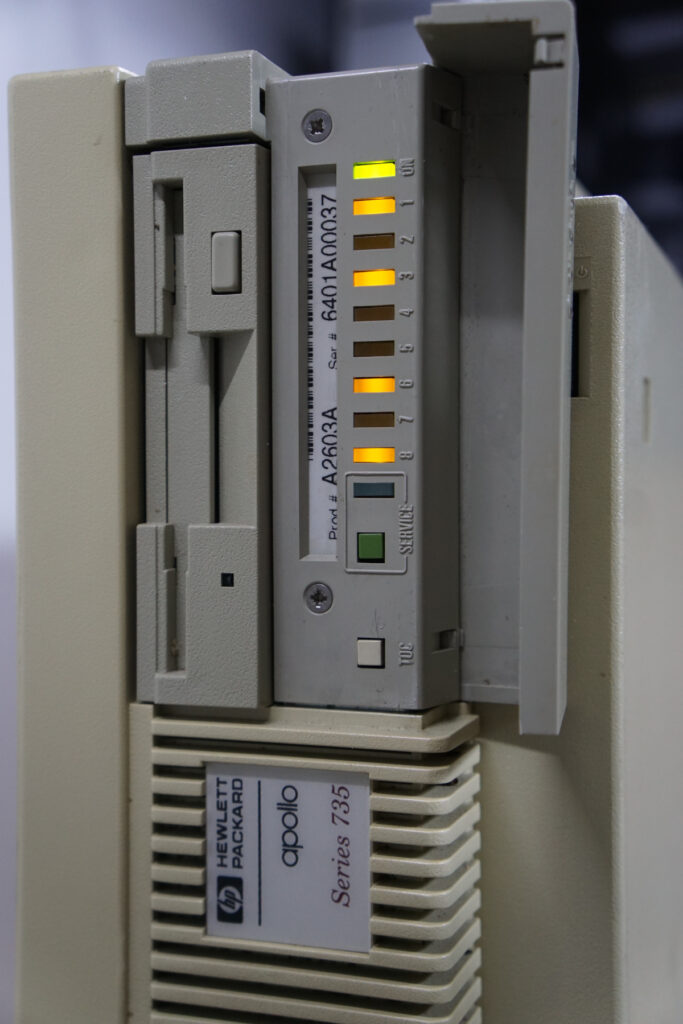
It booted to status LEDs at that point, and shows “8,6,3,1” which according to the service manual indicates “Autoselection Failure to Find Boot Device” – probably meaning the HDD is dead and/or wiped. The appropriate HP/UX media is easy enough to find.
Unfortunately, the monitor on my basement bench doesn’t seem to want to sync with the presumed 1280×1024@72Hz Sync-on-Green coming out of the video card, so I’m stuck for now until I can find a workaround. There is a 4th BNC labeled “Stereo” that might somehow be useful for sync? Or I need a scan converter/sync stripper gadget? … further research required.


Godd hint,
At mine I only had to replace the AC Line Connector (incl. filter caps).
Nevertheless I’ll replace the electrolytics later on. Thank You for the list of caps.
Did you found a source of HPUX 10.20 software ports e.g. gcc, since the HPUX porting archive abandoned the ports for 10.20 a log time ago.
Somewhre I do have CDs with the development system software (CC, Fortran etc.). These ones do not need license keys.
A.